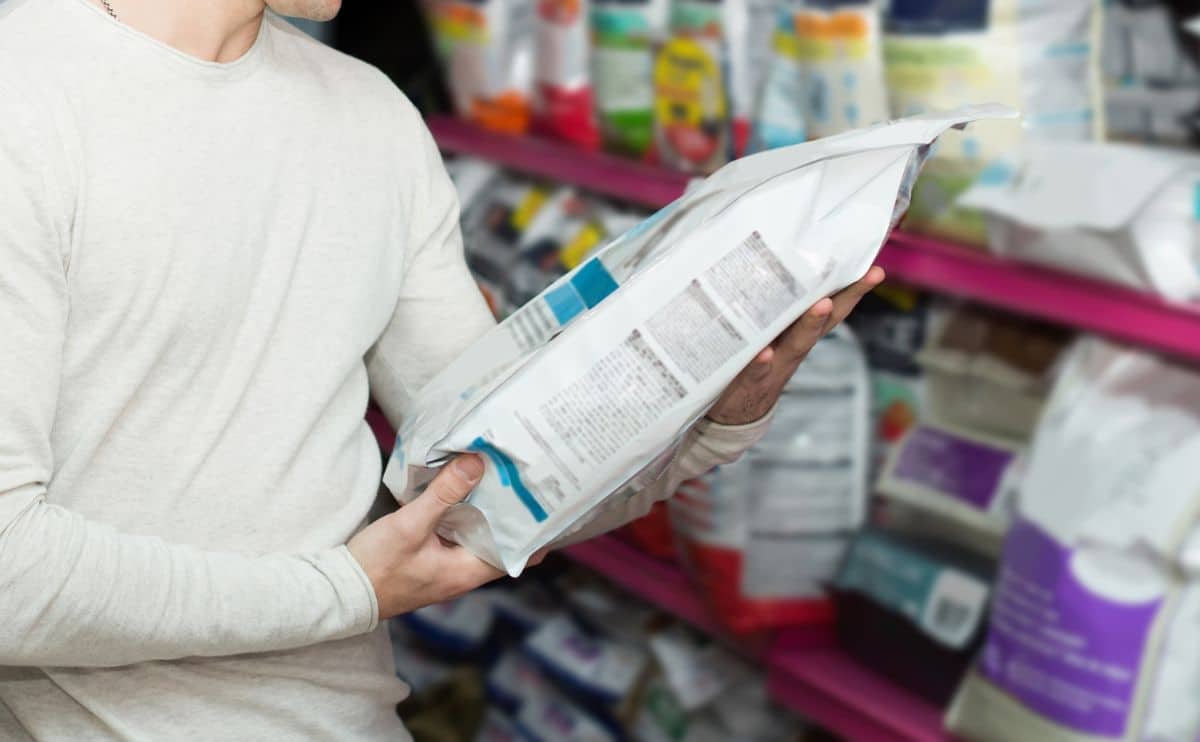Tocopherols In Dog Food: What Are They? Are They Safe?
When you purchase through links on our site, we may earn a commission. Here’s how it works.

When reading about dog food ingredients, there are many that owners may not recognize. Many of these ingredients are vitamins and minerals. One such ingredient is tocopherols. This leads us to the question, “What are tocopherols in dog food?” Are these safe? What role do they play in food? These are all valid questions, and we’ve done the research, so let’s jump in and get the answers.
Table of Contents
What Are Tocopherols In Dog Food?
Tocopherols are found in many assorted products and are a common ingredient in pet food, treats, and more. These are natural preservatives that come from the Vitamin E family. They are used to keep dog food fresh and prevent spoilage. They also act as antioxidants, helping to protect the body’s cells from damage. Tocopherols are naturally occurring preservatives and are far healthier for animals than artificial ones. Vitamin E supports a robust immune system, promotes healthy skin and coat, and aids cell function and fat metabolism.
Though artificial preservatives may last longer, they can interfere with digestion and even have long-term health impacts. Some common ones to avoid are butylated hydroxyanisole (BHA), butylated hydroxytoluene (BHT), and propyl gallate.
Tocopherols can occur naturally or be made synthetically. Those that are naturally produced are often found in vegetable oils and proteins like fish, nuts, and seeds. They are also found in fortified cereal products and green leafy vegetables. One in particular, called alpha-tocopherol, is said to be the most active natural one, as it has the highest biological activity. It has also been studied as a prevention and treatment method for cancer due to its ability to prevent cell damage. There are other kinds, including beta-tocopherol, gamma-tocopherol, and delta-tocopherol. These are all natural forms of Vitamin E.
Synthetic forms can be derived from petroleum products. Synthetically produced are not as strong as naturally occurring ones, and more is needed to get the same effect. Additionally, the body excretes synthetic elements faster, so they are not able to provide the benefits of natural ones.
Tocopherols are fat-soluble antioxidants, meaning they can neutralize harmful free radicals, or unstable molecules, in the body. Free radicals are unstable molecules that can cause oxidative stress, leading to cell damage and various health problems. Vitamin E can help prevent this damage and promote overall health by acting as antioxidants.
The Role Of Tocopherols In Dog Food
In pet food, Vitamin E elements perform a dual role. They act as natural preservatives, keeping kibble fresh and safe for consumption and contributing to nutritional value. They provide antioxidant benefits, support the immune system, and contribute to skin, coat, and overall health. In addition to their antioxidant properties, these compounds also play a critical role in several bodily functions. They play a role in immune function, gene expression, and metabolic processes.
Tocopherols help maintain the integrity of the food. They prevent fats and oils from oxidizing, which is very important. Oxidizing leads to rancidity and decreased nutritional value. This is important in recipes with elevated fat levels, as these are more susceptible to oxidation.
In addition to these roles, natural preservation elements may also improve the taste of your pup’s chow. They can boost the flavor and aroma, making it more appealing to dogs. This can be particularly beneficial for fussy eaters or pups with a diminished appetite.
Mixed Tocopherols For Dogs
Mixed tocopherols are often seen on pet food and treat labels. This means there are multiple kinds from multiple sources. These elements are used in kibbles as a Vitamin E source and a natural preservative. They contain a combination of different tocopherol forms, ensuring a balanced intake of this essential nutrient. Mixed tocopherols provide canines with nutritional and health benefits without the risk of an overdose. When choosing your pup’s nutrition, look for products that list these as natural preservatives.
Are Tocopherols Safe For Dogs?
Yes, tocopherols are safe for dogs in most cases when eaten in safe amounts. Vitamin E is an essential part of canine health and has many benefits. Though generally used as preservatives, they can benefit overall health. Vitamin E deficiency is relatively rare in pet canines. If you suspect a deficiency in your pet, discuss this with your veterinarian before adding any supplements.
While some pups may have sensitivities or allergies to certain types of tocopherol elements, these are generally rare. Most dogs can safely consume these without any adverse effects. As with any ingredient, it is essential to monitor your dog’s reaction and consult a veterinarian if you notice any signs of an allergic reaction or other health issues.
Read the best by date on pet nutrition products to ensure your pup gets fresh, well-preserved nutrition. Natural preservatives can keep kibble safe for around 12 months on average. However, always check the use-by or best-by date on the package.
While Vitamin E is generally safe for dogs, it is essential to be aware of potential side effects and take necessary precautions. Excessive supplementation can lead to digestive upset, diarrhea, and, in rare cases, even bleeding disorders. It is necessary to consult with a veterinarian to establish the appropriate dosage for your dog’s individual needs and to avoid over-supplementation.
What Other Natural Preservatives Are In Dog Food?
Other natural preservatives include Vitamin C (ascorbic acid) and plant extracts like rosemary extract, citrus oil, thyme, and oregano are all safe, natural preservation elements that are sometimes used in pet foods.
Canned pet foods do not use any artificial preservatives, so this is one way to ensure you are avoiding them.
Do Dogs Need Vitamins And Nutritional Supplements?
Depending on your pup’s specific health conditions, some dogs may need nutritional supplements. If you are feeding your pup chow that is complete and balanced and meets the Association of American Feed Control Officials (AAFCO) guidelines, they should not need any vitamin or nutrient supplements.
Always check the labels and ingredients on your pup’s kibble to ensure it is complete and balanced. Always give your dog commercial pet food that’s life-stage suitable — puppy, adult, or senior. Most pups will not need nutrient supplements unless recommended by your veterinarian.
However, dogs that eat a vegan or homemade diet, or those eating supplemental nutrition, may only get some of what they need and may not have a balanced diet. Consulting with a veterinarian and pet nutritionist is advisable to help ensure pups get a complete and balanced diet.
Some pets may need supplements for joint health, skin health, digestive support, or to help with allergies, among other things. You can learn more about the best vitamins and supplements for dogs here. Always discuss adding any dietary or nutritional supplement with your veterinarian.
Pick The Best Nutritional Formula
One way to ensure your pup has a nutritional balance and is not getting any harmful elements from his diet is to feed him the best nutrition you can. There are many fresh, human-grade options like The Farmer’s Dog, Ollie, Spot & Tango, Nom Nom, and more to pick from. Dry kibble and canned meals also offer many tasty, healthy selections. There are also plenty of options for different life stages, picky eaters, digestive, and other health needs. Pick a chow that is the right formula for your pup’s size. Large breeds and small breeds need different formulas. Always talk to your vet about any specific concerns with your individual pet.



